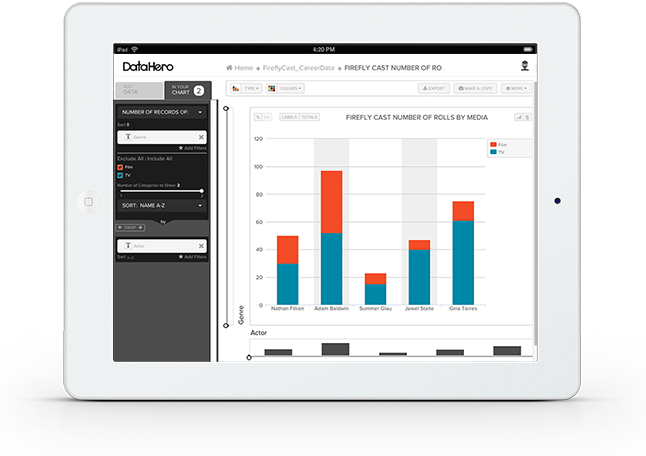For many people home is simply where the heart is. For DataHero cofounder and CEO Chris Neumann, even with a Palo Alto zip code, Vancouver is really home (only if it’s a visit once a quarter).
Every quarter he not only reconnects with family and friends, but he’s finding ways to connected and contribute to the local startup community too. Be it mentoring at a Startup Weekend or sharing thoughts about data analytics at Launch Academy, his experience and expertise is always valued. With a Computer Science degree from SFU, he started graduate work at Stanford in 2002 when the big bubble wreckage was still being cleaned up.
Previously he was employee number one at Aster Data, one of the first big data companies which built a massively parallel data infrastructure. That experience always makes Neumann an in-demand guy in Vancouver. Neumann said that “back in the day, we did all of the data analytics for the likes of MySpace, and the fraud detection services for Full Tilt Poker. I learned a lot about building scalable technology through to selling it. Learning about the early stage startup, to growth and right through to exit (Teradata acquired Aster Data For $263 Million in 2011) without being a founder has been invaluable.”
In July 2011 he started DataHero with cofounder and consumer experience expert Jeff Zabel, setting up shop in Palo Alto, California. The driving force for Neumann is “wanting to help everyone unmask the answers in their data, and not creating a product that was only used by data people.”
He’s careful too. “We’re not trying to make everyone a data scientist. Data scientists are extremely important because they are the people dealing with that data that no one’s looked at before, trying to make sense of it. These people have to have a data background. But to answer business questions of data, and to make of metrics at a basic level is not something that’s characterized as being in the realm of data science. A VP of Sales wants sales figures now, not six hours later.”
During our conversation Neumann shared that the team is shedding the beta “training wheels,” label and is now officially fully open for business. This coincides with announcing they have raised $3.15 million in additional seed funding led by existing investors Foundry Group. Their big plans will be expanding the team.
He also says “with one team member in Vancouver, and a personal bias in terms of appreciating the strength of local talent, adding more from my home town will be nice. You’re starting to see people become a little more diverse in terms of hiring. I won’t call it a backlash, but for some time there was a bias toward only wanting to hire people from places like Stanford, and Cal Berkeley and so on. Now you’re seeing the realization that number one, there’s a lot of smart people around the world; and number two, what some people in the Valley are demanding doesn’t always match the value. Rock stars come from a lot of different places.”
They’ll also continue developing key enterprise features. According to Foundry Group Managing Director Ryan McIntyre,“DataHero has made sophisticated data visualization tools accessible to a broad audience across a wide variety of popular enterprise SaaS data sources and cloud storage services.They recognize that the future of analytics lies in ease of access to a company’s crucial business data.”
Neumann shares that “over the past eight months, we’ve added powerful ways to analyze data, such as drag-and-drop cohort analysis, and made connections to popular services like SurveyMonkey, Stripe, Salesforce, MailChimp and GitHub making it easier to find insights in your data. In addition to our new interface, the new release of DataHero adds connections to leading online services SendGrid, Desk.com and Quandl, enabling users of those platforms to analyze and visualize their data directly in DataHero.”
While much of the talk and fascination revolves about the opportunities for big data, it’s fair suggesting there’s huge value to be found in small data too. Call this the consumerization of data. For Neumann, “it’s about empowerment, everyone should be able to work with data. It’s crucial to our economy going forward. We don’t end up in a situation where only a small number of people can make sense of data as it increases in value and importance.”
Neumann Photo by GigaOm



